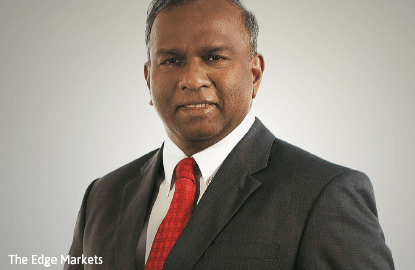
This article first appeared in The Edge Financial Daily, on November 24, 2015.
KUALA LUMPUR: Sime Darby Plantations Sdn Bhd, the plantation arm of Sime Darby Bhd, expects the El Nino phenomenon and prolonged dry period to affect 6% of its overall palm oil production output in the next one to two years.
“It all depends on the severity of El Nino and the haze situation in different locations,” Sime Darby Plantations managing director Datuk Franki Anthony Dass told reporters after Sime Darby’s annual general meeting yesterday.

Dass added that the group had already seen the impact of El Nino on its plantations in South Kalimantan, while its operations in Sabah had experienced a significant drought, which lasted three to four months.
“All these will reduce production in the next one to two years,” he added.
Dass said the group will revert some of its oil palm plantations back to rubber, with a target of achieving a ratio of 10% to 15% rubber, 85% oil palm and 5% sugar.
Its crops are currently at a ratio of 98% oil palm, and 2% rubber and sugar, according to Dass.
“We currently have roughly 9,000ha of rubber plantations, which will eventually come up to about 20,000ha in Malaysia,” he explained.
The group plans to achieve its rubber target in the next five to 10 years.
Dass added that the group will also look at expanding its rubber plantations in Liberia, where he foresees demand will eventually pick up, together with its healthcare and automobile sectors, given the country’s population growth.
On the establishment of the Council of Palm Oil Producing Countries, Dass said Malaysia and Indonesia, controlling 85% of the world’s production, will be able to help mitigate crude palm oil pricing and sustainability issues.
He added that the council will also help address the annual haze issue between the two countries.
Dass stressed that Sime Darby Plantations does not burn forests in its operation areas to make way for oil palm plantations.
“I can assure you that most large plantation companies operating in Indonesia would not burn, as they would not risk their reputation.
“The fact of the matter is, it is smallholders and villagers who slash and burn, and there are encroachment fires on peatlands that can come from underneath and appear in our operation areas. We helped neighbouring villagers and smallholders to put out the fires,” he explained.
Dass added that Sime Darby Plantations was the pioneer in developing the zero-burning technique, which has now become the industry standard adopted in Asean.